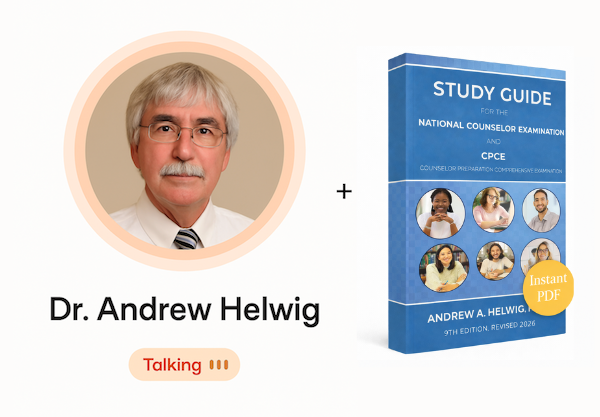Step into exam day fully prepared with Dr. Andrew Helwig’s exclusive prep system — crafted for those who want the very best.
The bundle includes:
- 400+ Page Study Guide PDF – Master all 8 exam domains with expertly curated, comprehensive content.
- Dr. Andrew Helwig AI Study Guide Assistant Access – Your personal, interactive study partner. Ask questions, review concepts, and get instant answers anytime.
This isn’t just study material.
It’s a premium learning experience designed to give you confidence, clarity, and a competitive edge as you prepare for your counselor exam.

